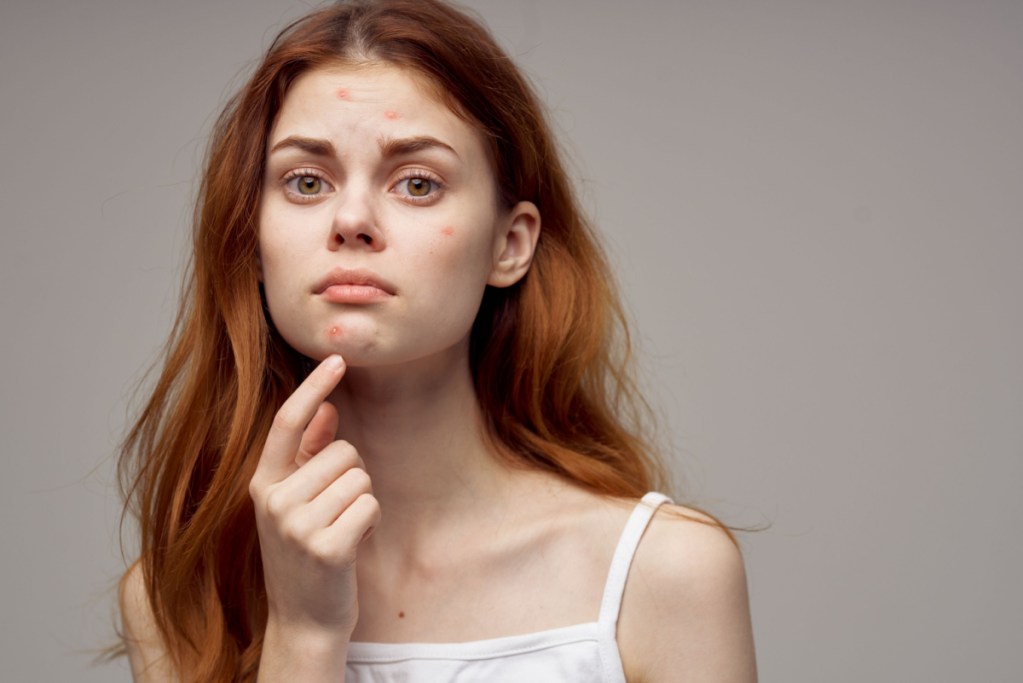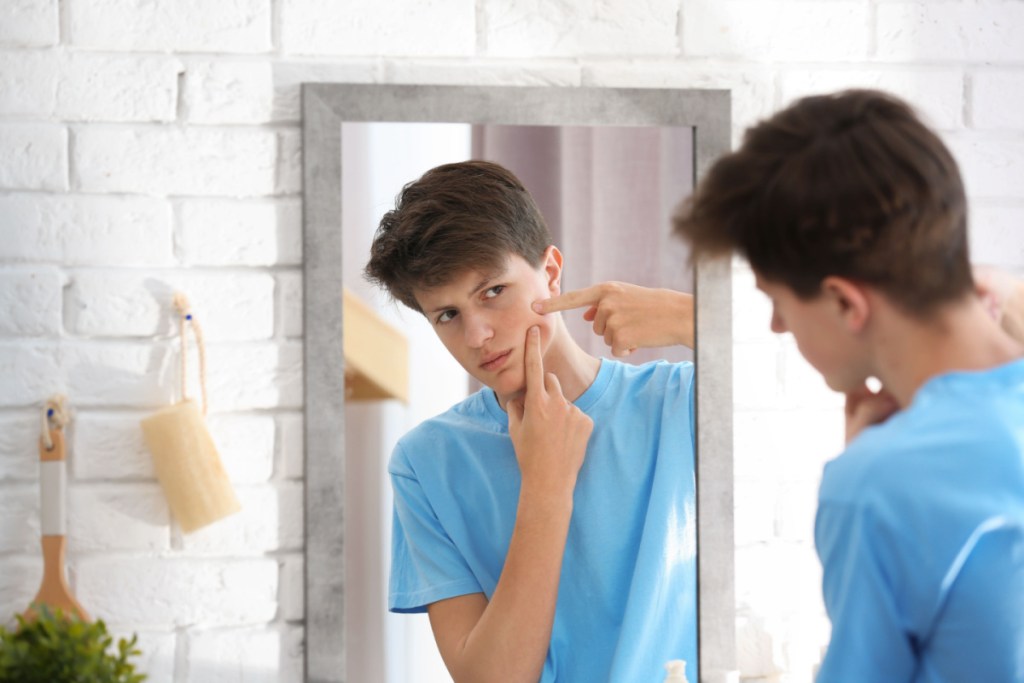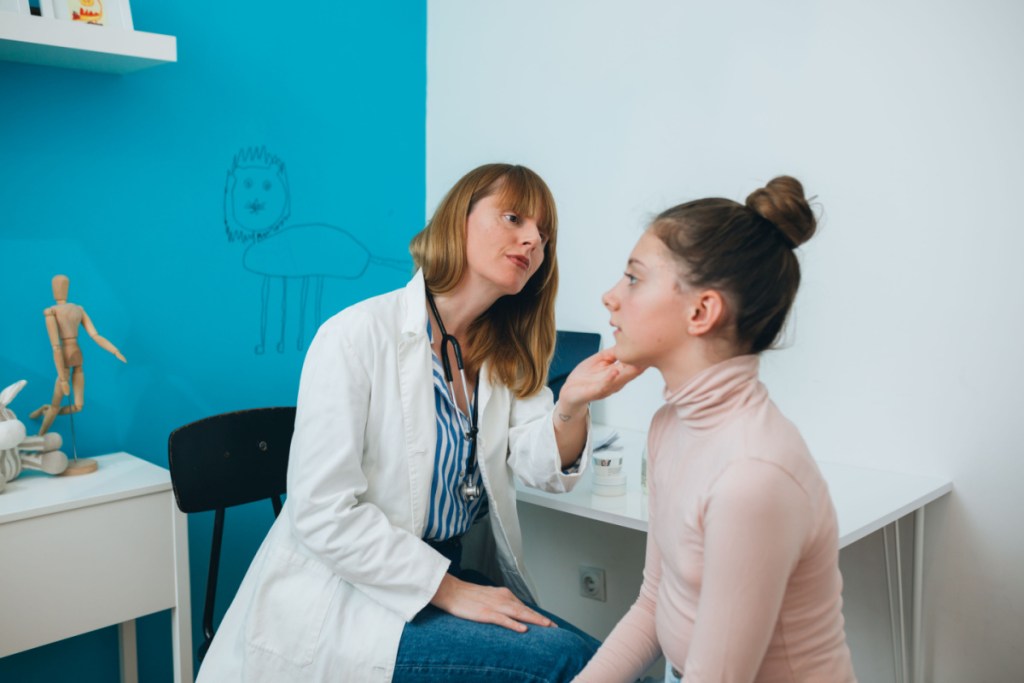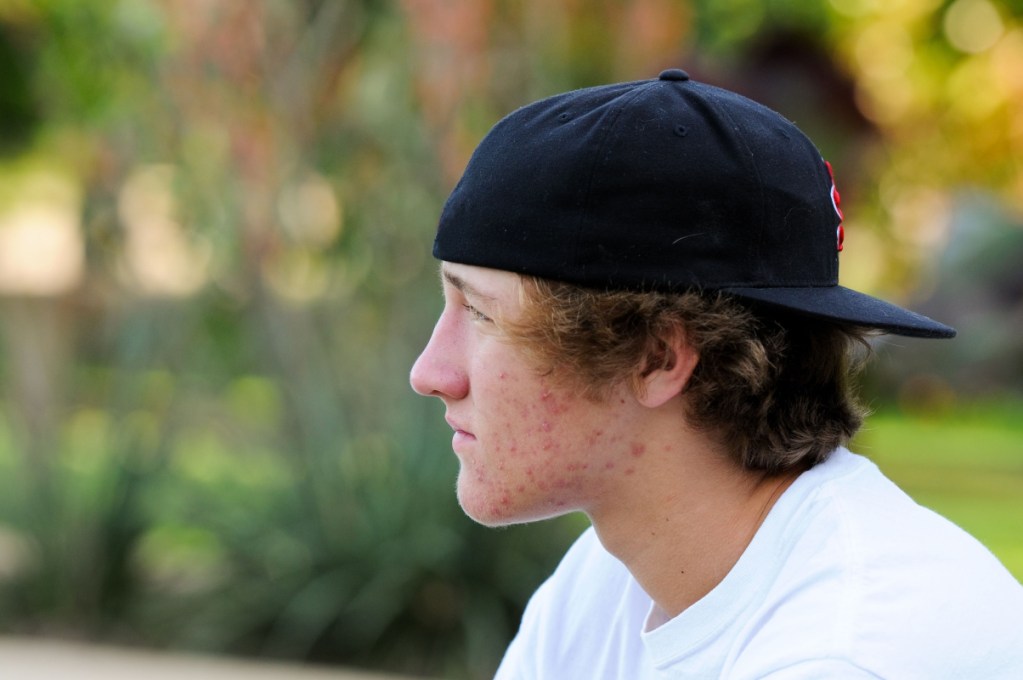Pimples and adolescence certainly seem to go hand in hand. According to WebMD, 85% of teenagers struggle with acne. While acne and recurrent breakouts are widespread in tweens and teens, there are factors that contribute to the common skin problem.
Genetics and hormones are two of the main causes of acne. If you battled breakouts as a teenager, then your teen most likely will as well. When puberty hits, the changes tweens and teens experience in their hormones are the major contributors to breakouts and acne. Stress and anxiety also play a role, which is why those pimples always seem to crop up right before the homecoming dance or a speech. Moms have said it for years and teens don’t necessarily listen, but diet has a hand, too. Medication and makeup can also cause breakouts and acne.
Acne may be an everyday skin issue but dealing with acne and constant breakouts takes a toll on teens. Adolescents who struggle to have a clear complexion often have lower self-esteem and confidence. Acne can also lead to depression in teens. So, what can you do if your teen is battling breakouts and acne?

Help for teen acne
Acne happens when hair follicles become clogged with oil and/or dead skin cells. From the clogged hair follicles, whiteheads, blackheads, and pimples develop. Pimples can be red bumps or filled with puss. Some pimples can be hard and tender to the touch. While acne can strike at any age, the skin condition most often impacts tweens and teens. Thankfully, there are options for teens struggling to clear up their complexion.
Facial washes
Since breakouts and acne begin with clogged pores, the first step to having a clear complexion is for teens to wash their faces. The key is to use a gentle cleanser and not to wash more than twice a day. Teens should wash without scrubbing, as scrubbing can cause skin irritation. Avoid using a washcloth. Use fingertips instead. PanOxyl is a popular product recommended as a facial wash for teens fighting breakouts and acne. Alternating between PanOxyl and Neutrogena’s Oil-Free Acne Wash can help clear up existing breakouts and keep new ones at bay.
Diet
While diet may not cause acne or breakouts, it is a contributing factor. Drinking plenty of water is a simple way teens can help clear up their complexion. New Jersey dermatologist Sandy Milgraum recommends his acne patients avoid skim milk, reduced-fat milk, and whey protein. Plant-based milk options may help some teens struggling with breakouts. Milgraum also suggests limiting or eliminating processed sugars and foods, red meat, and chocolate. Instead, the dermatologist encourages his acne patients to eat more vegetables, fruits, fish, yogurt, nuts, and seeds as well as drink green tea.
Supplements
The jury is still out on whether vitamins and supplements can help teen acne, but some dermatologists do recommend adding certain supplements when battling acne. Some studies have shown zinc, vitamin C, vitamin D, vitamin E, vitamin A, magnesium, calcium, and omega-3 can help with acne symptoms. An excess of B12 may actually make acne worse.

Best acne products for teens
Take a walk down the skin care aisle at your local grocery store and you’ll find a lot of acne products, but which ones work best? When shopping for acne treatments for your teen, the most recommended ingredients to look for in products are benzoyl peroxide, salicylic acid, and retinoids. Acne cleansers can be harsh on the skin, which is why many skin care systems include a moisturizer. Here are the top over-the-counter acne products for teens.
Proactiv
Proactiv is a three-prong skin care system that has been around since 2017. There are three different options available, including one for dry, sensitive skin, oily and combination skin, or all skin types. Taking the skin test on the Proactiv website can help determine which system will help your teen best. Users subscribe to the Proactiv system and receive their three-prong skin care regime every three months. Other products like moisturizers and sunscreen are available on the website for purchase, too. You can cancel your teen’s subscriptions if the system isn’t working.
Curology
Another popular subscription system to help clear up acne is Curology. To find out which personalized cleanser is ideal for your kid’s skin, they need to answer questions, send photos, and have a telephone conversation with a Curology dermatologist. The program also offers an acne body wash for teens struggling with breakouts on other areas of the body. Curology offers a 30-day free trial offer. Users can cancel their subscription at any time.
La Roche Posay
If you’re looking for a non-subscription skin care system for your teen, try La Roche Posay. This is another option that incorporates a cleanser, clarifying solution, and spot treatment to help reduce acne. The three components are available in a kit that’s available online at the La Roche Posay website for around $30.
Differin Gel
This acne treatment used to be prescription only. It’s been available as an over-the-counter option for a while and is an adapalene acne treatment developed by dermatologists. Differin Gel can be hard on the skin, so it’s important to follow the package directions. It works to clear up current acne issues as well as prevent new breakouts.

When to take your teen to the dermatologist
While there is a great deal of over-the-counter help for teen acne available, there sometimes comes a point when it’s time to head to the dermatologist. Mild or moderate acne should clear up or improve greatly after about four to six weeks of treatment. If your teen has been trying skin care programs like Proactive or over-the-counter facial washes like PanOxyl, taking supplements, and making dietary adjustments with little improvement, it’s time to seek the help of a dermatologist.
More serious types of acne like cystic will not get better with over-the-counter skin care treatments. If over-the-counter products are making your teen’s acne worse or if it’s impacting other areas of their life, then make a dermatologist appointment. Oral therapies as well as other treatment options are available by prescription. If you’re not sure where to find a dermatologist in your area, ask your pediatrician for a recommendation.

A final note on help for teen acne
Everyone has experienced an embarrassing pimple or breakout at the worst possible time. Many parents battled acne themselves as teens. If your teen is struggling with breakouts and acne, there is help. Making dietary changes, staying hydrated, and taking supplements can be beneficial in the fight against acne. There are also several over-the-counter acne products that work for many teens. We’ve organized the best acne products for teens on the market for you to check out.
As much as teens may want to pop those pimples like the viral Dr. Pimple Popper, they shouldn’t. Popping and picking pimples can spread the breakout and cause scarring. Finally, if none of the above tips are making headway with your teen’s acne, it’s time to reach out to a dermatologist. Acne can impact more than your teen’s complexion.



